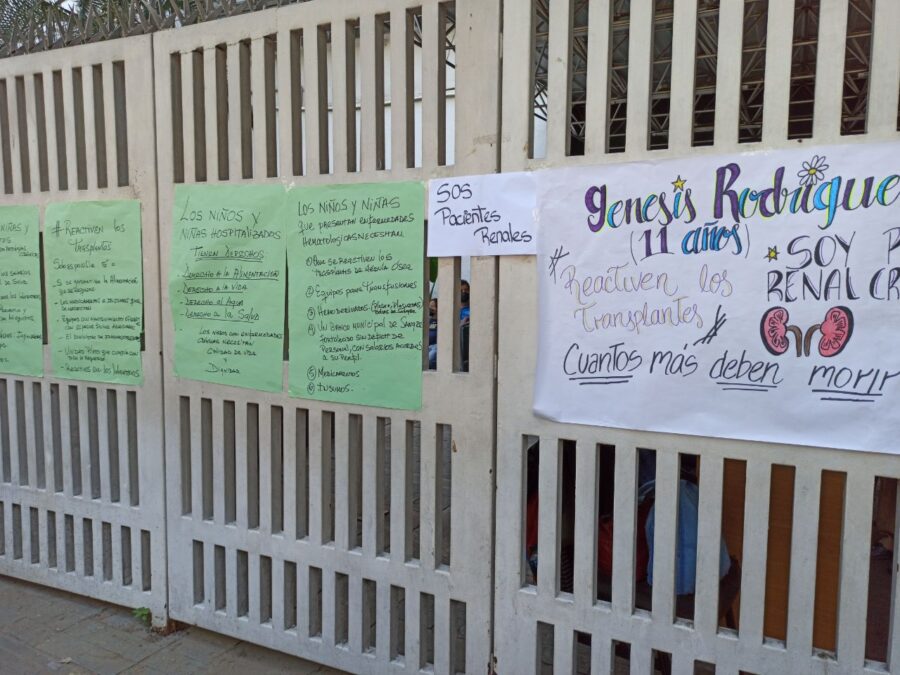According to political scientist and university professor Ricardo Sucre, the assessment of the work of the opposition-controlled National Assembly is gloomy. He considers that one of the mistakes was trying to carry out a parliamentary insurrection in a country with a presidential regime. “People wanted and still want a confrontational National Assembly even though that does not lead us to oust Maduro, paradoxically,” he said. He believes that the merger of the Mesa de la Unidad (the opposition alliance) with the National Assembly weakened the Parliament and brought the coalition to an end
The political scientist, social psychologist and communicator, Ricardo Sucre, affirms that the opposition spent most of the last five years in a conflict for power that focused more on removing Nicolás Maduro from office than strengthening the National Assembly as a political institution.
In his opinion, the political leadership was not able to make the majority of the population, including ruling party members and opponents, feel equally represented in Parliament.
Sucre, who is also a professor at the Central University of Venezuela, spoke with Crónica Uno via telephone. According to him, far from being able to act under its constitutional mandate (legislating, overseeing the rest of the public powers and representing its constituents), the National Assembly assumed a different role.
“The dynamic since 2016 was to seek to replace the Government. The role of the Assembly was not to legislate, control or represent; that is why I do not see any achievement in this regard, even though they are its natural attributions. Instead, it focused on seeking ways to replace Maduro. In early 2016, Ramos Allup stated that they would present a formula to remove Maduro from office within 6 months; then Borges raised the issue of the vacancy of the position; then came Barboza, whose tenure was perhaps the closest to the actual work of an Assembly, in the sense of trying to articulate and give a voice to the political forces and the people; and then Guaidó, who in the last two years resumed and promoted the search for a change of government to maximum levels. In those five years, the National Assembly starred in a power conflict seeking to remove Maduro “.
But Maduro remains in office, and from that perspective, it can be said that the National Assembly was not effective in that role. What is your general assessment of the performance of the National Assembly in these five years?
– I hold a negative evaluation for several reasons. First because regardless of whether the results of the December 6 elections are recognized or not, Maduro remains in power. The Parliament set a goal in 2016 – with a hiatus during Barboza’s tenure, as I have already said – in which it was not successful. Second, I think the role of Parliament was somehow subverted.
“They wanted to carry out a parliamentary insurrection, a parliamentary transition in a country that does not have a parliamentary system but rather a presidential system.”
And thirdly, as a consequence of the above, the opposition weakened. Today, its leaders are in exile and its structure has been seriously weakened, beyond the attempt to reorganize after the People’s Consultation. And according to citizen opinion, the opposition is undervalued. When the opposition won the National Assembly in 2015, it obtained 56% of the votes and 2/3 of the seats, but at that same moment its crisis began, when Ramos Allup allied with Voluntad Popular and broke the parliamentary governance agreement.
Do you consider that there is any aspect of the parliamentary function of the last 5 years worth mentioning?
It would be the effort made in 2018 to give the National Assembly a character of political representation where all sectors were included and people could see their concerns reflected, a sort of political referent. But it was an isolated effort. Barboza gave it a try but it was not enough, perhaps because the Assembly had already been dragging on the effects of 2016 and 2017. I think that this attempt was not part of a consensual political decision of the parties, but the style of Barboza’s proposal. But it is also true that Barboza’s policy is not what the opposition desired then or what it wants at this moment. Neither at the top nor the base of the opposition, because everybody wants to get rid of Maduro right now. The people wanted and still want a confrontational National Assembly even though that does not lead us to oust Maduro, paradoxically.
Can international support continue to be held up as an achievement?
– External recognition is not an achievement but neither is it a mistake. For practical internal purposes, it bears no impact. The international recognition of the National Assembly must be reassessed at this time, because Trump, the main ally in the continent, lost the election; the political trend in the region is changing. We lost the support of Argentina, Bolivia and Mexico. Chile could reorient itself. The same for Peru and Ecuador. For me, beyond the People’s Consultation, the outcome of the last five years is negative.
You mentioned that the only period in which the National Assembly was close to fulfilling its institutional role was during the tenure of Omar Barboza, but how could a policy of strengthening Parliament be sustained, from a political point of view, in a context of permanent harassment from the rest of the public powers?
– The big question is if Parliament had acted differently, would the Maduro government have acted differently? I do not know. I doubt it. But when I speak of political strengthening as a strategy more aligned with the functions of the National Assembly, I mean that, for example, when the decree of economic emergency was discussed in January 2016, the AN could have tried to maintain political tension, conduct interpellations, vote or make proposals while diverting attention from the “Maduro must go now” strategy because such move put the government on guard. And I do not mean excusing and exempting the Government from its responsibilities and wrongdoings.
What else do you think could have been done differently?
– Trying to get closer to people’s problems. In 2015 we were already at the height of the shortage of food and medicine. In early 2016, the Assembly could have opened up to the people, held special sessions with food producers and consumers and boosted its popular support, even despite the alleged contempt ruled by the Judicial branch. I would have approved a program for an opposition government in the Assembly, a vision for the country that included the economy, independent Armed Forces, and so on. But the ‘Maduro must go now’ mantra put the National Assembly in a confrontational dynamic and a conflict of public powers. I believe that if the policy implemented by Barboza in 2018 had been applied since 2016 and in a sustained manner, the population would have had a better appreciation of Parliament.
But you said that people did not and still do not want a National Assembly open to dialogue but confrontation…
-Yes. It is complicated. But today we see that the promise of the opposition in December 2015 according to which the voting line would be the last line for Venezuelans and Maduro would be removed from office was not honor. Did the opposition handle its 56% popular support well? The other mistake was that the Mesa de la Unidad, the institutional mechanism of the opposition coalition, merged with the National Assembly. The entire weight of the opposition was transferred to the National Assembly. Then the opposition lost the Assembly as a counterweight to power because the people no longer knew if the Assembly was the Legislative Power or the headquarters of the opposition.
How did the dismantling of the Mesa de la Unidad affect the performance of the National Assembly?
– In 2016, the leaders of the opposition agreed that the dominance of the alliance of the four biggest political parties in the opposition could not be transferred to Parliament but the decision was not brought to practice, reducing the legitimacy of the institution because the National Assembly is the representation of all political forces in the country, not just the opposition. The opposition lost sight of the fact that many of the people who voted in its favor in 2015 were not supporters of the opposition but rather showed their rejection of the government through their vote. So the logical thing was for the leaders to defend the separation of the Mesa de la Unidad and the National Assembly through, for example, enacting a liaison between the opposition and the Legislative body, but that was not done. Instead, the National Assembly weakened to the eyes of a sector of Venezuelans that stopped feeling represented by the body, and before a government that took advantage of the situation to feed its discourse of a “bourgeois” Assembly. The opposition lost the political narrative and its work of political management and understanding; then it put the two structures together: The National Assembly and the Mesa de la Unidad. It took the product to Parliament under the belief that the move would create a superpower, and we see what happened.
Translated by José Rafael Medina




